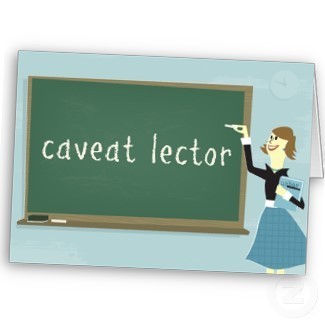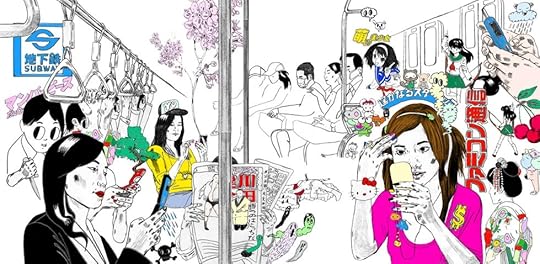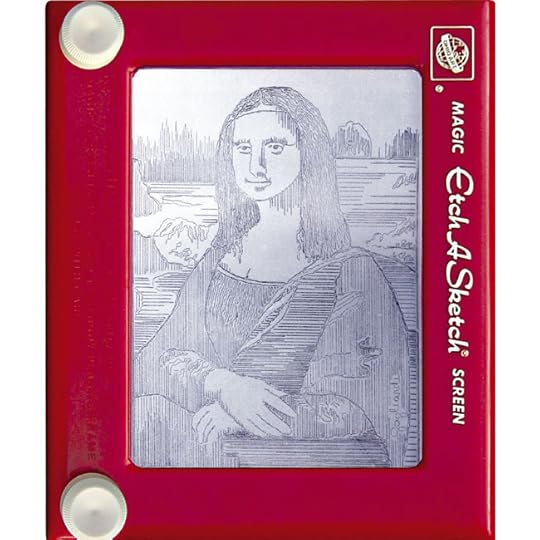Daniel Nayeri's Blog
March 6, 2013
The Censorship of Noise
Book Glut, “Bookride”
To continue the “Here’s a question” series, I wanted to talk about an essay by Lester Asheim, the former dean of the University of Chicago graduate library school, and president of the ALA, noted the practical similarity between gatekeepers like librarians and editors, and censors. He explores the question of why we call the people with whom we agree “curators” and those with whom we disagree, “censors.”
My post evolved when I thought of Asheim’s essay in light of digital books. To me, it seems to flip his rubric for how we decide what makes a “censor.”
Here’s the full post. The question was: Does the digital era flip our definition of censorship?


What Can Save May Also Harm?
I decided to start a series over on the CBC Diversity blog called, “Here’s a question,” because during our meetings, I sometimes raise my hand and say exactly that. I do try to emphasize the question, because I’m not particularly interested in proscribing answers.
For this first post, I ask the question: Do YA authors, editors, and librarians promote the idea that YA books have the power to do good, but reject the idea that they can do harm?


How I Got Into Publishing
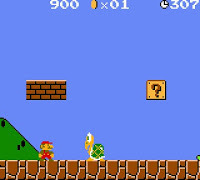
Last year, I joined the newly created Diversity Committee of the Children’s Book Council. I’m sure I’ll talk more about it, but for now, I wanted to cross post a few pieces I did for the blog.
I couldn’t be more excited to be part of the committee. I had never met the other members (frankly, they’re ALL above my pay grade). Already, I think of them as friends.
Here’s my first post, about how I got into publishing.
Here’s the first line: When I came to the United States at the age of eight, I spent a lot of time in the library because I needed to learn English, and because none of the neighborhood kids knew yet how awesome I was at Nintendo.


March 16, 2012
School Visits!
I am SO excited to unveil my School Presentation. This is the interactive dog & pony show I do at schools whenever I speak about storytelling conventions and genre writing. I hope you like it! Obviously, if you're a teacher, I'd love to present this at your school! My email is easy to find if you're not a spam bot (pssst, it's below).
It's got lots of a swirly motion, and videos, and stuff. You'll laugh, you'll cry, you'll take some Dramamine.
Lemme know what you think. I'm starting the school visit tour this week.








February 25, 2012
Biblioklept Interview
Had a great time interviewing with Biblioklept. Somehow I let this inappropriate gem about the censorship issue get past my own internal censors:
"I think both sides of the argument are often concern-trolling-—one side saying kids shouldn't hear the f-word, and the other side screaming censorship to the culling of anything short of snuff-porn."
Read the rest, here.








February 18, 2012
Why Did I Write a Cell Phone Novel?
I'll tell you why. In early 2008, I read an article in the NY Times that coincided with my own growing interest in the cell phone novel phenomenon in Japan. You have to understand, I'm that guy in my friend group who comes out with random statements like, "You know, I was reading that Red Bull is really big in Dubai, because it gets you hooped up, but it doesn't break Islamic law against alcohol." And all my friends smile and nod.
I feed off of this sort of trivia…the odd passions of cultures and subcultures. They are
neatly arranged on my mental shelves next to my collections of sports jargon and the
language I created on Steno pads when I was kid (I assure you, I was extremely well-
liked by my peers).
Anyway, I was intrigued by the cell phone novel on a theoretical level. It conjured up
ideas of becoming cloistered into this tiny screen. Literally shrinking the landscape of
imagination from a notebook all the way down to a cell phone.
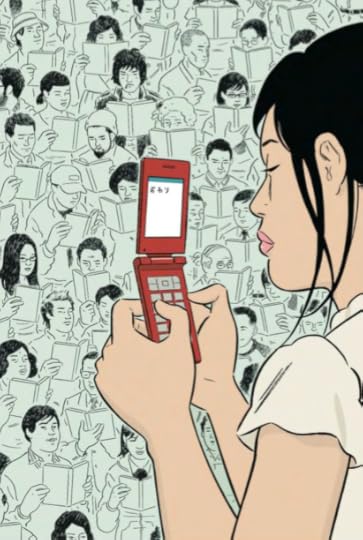 I didn't think much more of it until I started reading more and more about the reaction these novels were getting. As any popular trend, it had its success stories and its share of critics, who were terrified that all of literature would implode soon. And if not soon, then certainly by the time you finished reading your first cell phone novel.
I didn't think much more of it until I started reading more and more about the reaction these novels were getting. As any popular trend, it had its success stories and its share of critics, who were terrified that all of literature would implode soon. And if not soon, then certainly by the time you finished reading your first cell phone novel.
The language they used was downright silly, as though a cell phone novel was the rasping voice of an Eldritch Abomination—the mere reading of which would open portals in the chaos realm, the place illiteracy dwells!
The most vocal critics seemed compelled to tell us that it is a pulp medium, a low form. A lot of the stories were "phoned in" to a website. They had a serial format and overwhelmingly, they seemed to feature lots of sex, and an odd undercurrent of abuse narratives.
Many of the authors were young women, still students, who were cranking out these
novels on their way to school. They had a toss-off attitude that seemed to inspire rage in
their detractors.
I thought, "Wow. Writing as a transgressive act! When was the last time that happened?"
I wasn't interested in the shock value of the content so much. I'm not sure I could out-
smarm reality TV anyway. But I knew the genre was discredited in the eyes of many
critics simply for deigning to be on a phone–and if I didn't know better, for being
adopted by the young.
Think about this with me. When was the last time a literary form was in and of itself threatening? I'm not talking about content. I'm talking about form. So, for example, the Beat Generation of poets was breaking form from the modernist idea. Nowadays, we don't think of written forms as dangerous. Not nearly as often as we express fear about visual arts like comics, which can imprint images into the minds of our youth (see Wikipedia about "comics code"), or more recently, video games, which as a form allow us to enact the sometimes-violent lives of protagonists. We don't ascribe this kind of danger to books as much. When we censor books, we're mostly looking for instances of sexy-touching and the f-word.
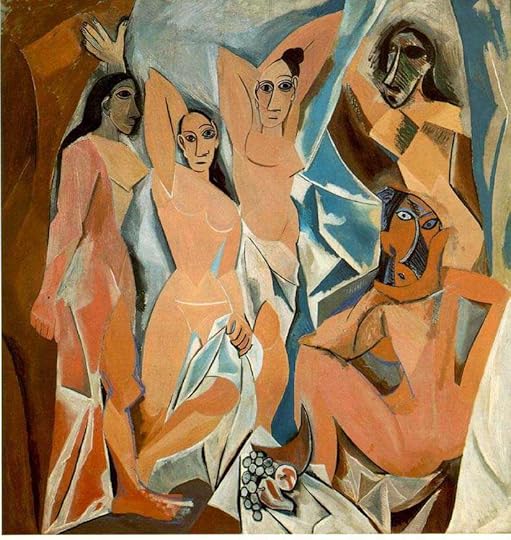 Nowadays, for example, no one looks at a Picasso and says, "My goodness, this man has
Nowadays, for example, no one looks at a Picasso and says, "My goodness, this man has
broken the mimetic unities!" That's because we've all ingested the theoretical argument
of the Cubist movement, and it isn't cutting edge anymore. If anything, some people
might be bothered by the naked women (the content), but no one objects that he's making an argument against Truth by shattering the idea of Objectivity. For better or worse, the existence of that idea is in the given category.
But if you listen to the critics, you'd think a cell phone novel is the literary equivalent of one of those underage sex parties our local news channels scare us about where desensitized millennials have orgies for different color Skittles.
One magazine asked if cell phones actually meant "the death of 'the author'".
Of course, the proponents of cell phone novels weren't helping their case. From the
article:
"Rin, said ordinary novels left members of her generation cold.
'They don't read works by professional writers because their sentences are too difficult
to understand, their expressions are intentionally wordy, and the stories are not familiar to them," she said. "On other hand, I understand how older Japanese don't want to recognize these as novels. The paragraphs and the sentences are too simple, the stories are too predictable. But I'd like cellphone novels to be recognized as a genre."
I don't about ya'll, but I'm still slobber-knocked by the idea of a generation dismissing
every other novel that has come before because they're too well written. That hurt.
And so I had what I thought was an interesting challenge in front of me when I
started "Straw House, Wood House, Brick House, Blow." Miroslav Volf (Yale thinker,
theologian) has a wonderful speech about artists as transgressors as well as reconcilers. I
thought of that here. The transgressive "low" form of cell phone novels being reconciled
with stories that try very much to live in the literary tradition—stories that are influenced by genres and works of the Western Canon.
I know that sounds like a wind-baggy author giving some high-falutin' reason for his
work, but that's really the only answer I have. The truth is that I got really excited
about forcing my imagination to live in an incredibly small space. The Japanese authors discussed that when they moved to computers, their vocabulary became "richer" and their "sentences have also grown longer." I wanted to see if I could push those boundaries out a little (maybe I'm the crazy person who tries to paint the Mona Lisa on an Etch-a- Sketch).
Admittedly, this all has a lot more to do with me as the author than it does with the
readers. I think it's important to experiment (and this is a fairly narrow definition of experimenting too). Right now, the film and video game industries have a nasty habit of complaining constantly that every major release is a rehash, or a sequel, or an adaptation of a board game. But when something comes out that is trying a different approach, they rarely celebrate those differences. Ask any pastry chef about which dessert gets picked ten times more than any other and you'll get an exasperated, "Molten Chocolate Cake.
Even in a pan-Asian restaurant, they order that stupid cake!"
Audiences want "fresh but familiar" is the advice from the clueless executives…and
mostly familiar (see Mirror's Edge reception, The Fall, Psychonauts, etc). Unfortunately,
this kind of advice makes little sense. A creative endeavor is—by its nature—an
adventure. A writer's job is to open every door. Some might be dead ends. Cell phone
novels may not have lasting power. Who knows. The point is to step into the liminal
spaces. Explore for a while.
I had one MFA student contact me. She was writing her thesis on experimental forms,
and we had a lot to talk about. But I'm not expecting everyone to go fangirl on the idea
of form/content relationship. That's what the stories are for. I hope they can read and
enjoy a Western about a farmer who grows toys, and a Detective series about evil wishes,
and a good old-fashioned romance. At end, it comes down to that. My dream is to have
delivered the old Kiss Kiss Bang Bang in a new way. You know, fresh but familiar.








February 16, 2012
Alison Bechdel
An interview of Alison Bechdel about her process–which seems to be part shaman, part craftsman. She's a fascinating creator.
Here's the original link. Interview by Hilary Chute.








Bechdel Interview
An interview of Alison Bechdel about her process–which seems to be part shaman, part craftsman. She's a fascinating creator.
Here's the original link. Interview by Hilary Chute.








February 5, 2012
Interview with Kidlit.com
An interview with Mary Kole at Kidlit.com! She calls me a "renegade," which makes me feel like this guy:
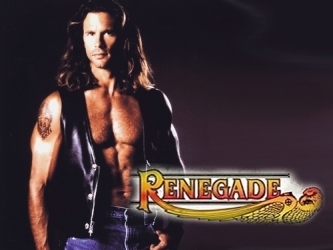
Yep, Lorenzo Lamas
I'm probably more similar to the kid in Mary's banner, though. Except for being a girl and all. Enjoy the interview.








December 21, 2011
WOA!
Haven't done a Wall of Art post in a while, even though I've seen dozens of brilliant illustrators lately. So this time, you get a double-header!
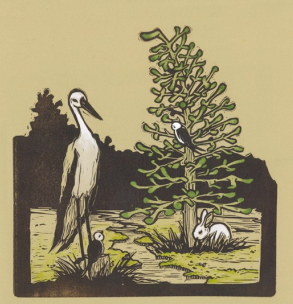 First up is Erin O'Shea, whose work has a classic woodcut quality that reminds me of David Frampton.
First up is Erin O'Shea, whose work has a classic woodcut quality that reminds me of David Frampton.
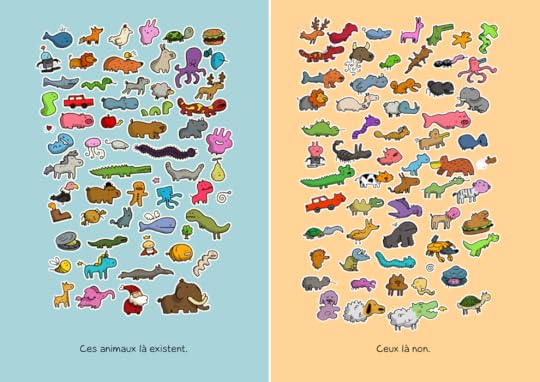 And next up is Renaud Forestié, who has a huge range of styles…this is his "so cute I could DIE!" style.
And next up is Renaud Forestié, who has a huge range of styles…this is his "so cute I could DIE!" style.








Daniel Nayeri's Blog
- Daniel Nayeri's profile
- 902 followers


